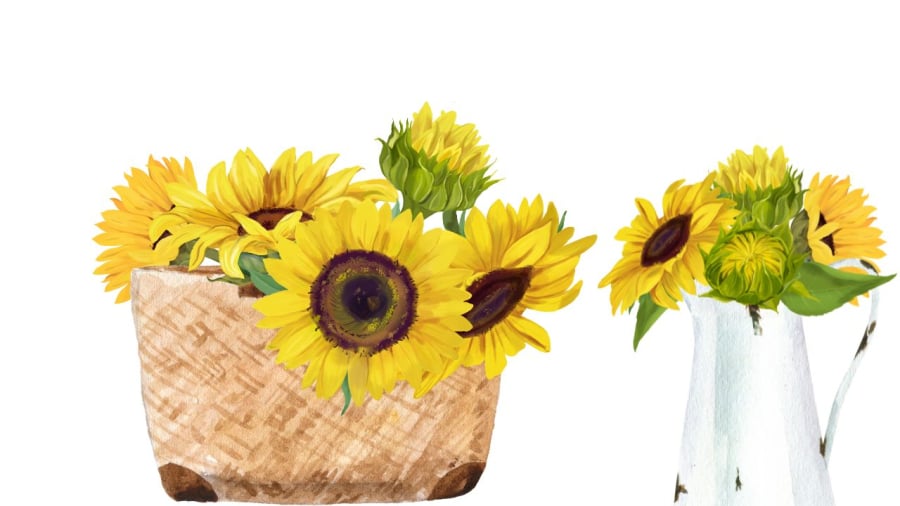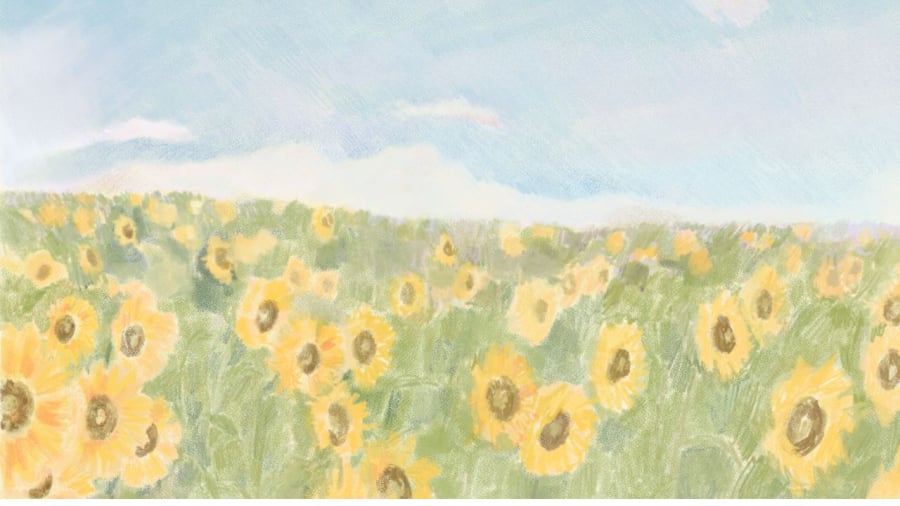Sunflowers were primarily grown for their seeds, but as lifestyles evolved and the demand for decorative flowers increased, sunflowers began to appear at florists, offering a bright and beautiful alternative to other blooms. The sunflower’s vibrant colors, intriguing form, and positive symbolism have made it a popular choice for flower arrangements, gifts, and home decor. As sunflowers always face the sun, they symbolize growth, optimism, and a resilient spirit.
Sunflowers are also associated with good luck and prosperity, representing a movement towards light and away from darkness. The flowers’ natural tendency to turn towards the sun makes them a symbol of justice, nobility, and a return to positive things. Admiring sunflowers is believed to bring good fortune and positive energy, reflecting an optimistic and bright spirit.
Today, sunflowers are a popular choice for conferences and events, offering a fresh and vibrant feel.

The Beauty and Significance of Sunflowers
Why Do Few People Plant Sunflowers in Front of Their Houses?
While sunflowers are familiar and beloved, few people choose to grow them as ornamental plants in their homes. We often associate sunflower fields with farms or tourist attractions…
The reality is that sunflowers don’t thrive when planted individually in residential settings. They prefer wide-open spaces with abundant sunlight, allowing them to face the sun properly. Without sufficient sunlight, sunflower petals may curl, and the plant may not align with the principles of feng shui.

Sunflowers Thrive in Fields Rather Than Individual Plantings
Another characteristic of sunflowers is their tall stature, which makes them prone to falling over when planted in small numbers. When sunflowers don’t receive direct sunlight or are planted in shaded areas, they may fail to produce seeds, and the flowers may not develop properly.
Additionally, the biological nature of sunflowers can impact nearby ornamental plants. Sunflowers attract birds, insects, and pests, which may have negative consequences for other plants in your garden. Planting sunflowers can also affect the nutrition of nearby plants.
Growing sunflowers from seedlings to blooming flowers may not be as successful as cultivating other ornamental plants. Therefore, few people choose sunflowers for feng shui purposes and instead opt for already blooming flowers or those about to bloom.
To incorporate the positive symbolism of sunflowers into your feng shui, consider using sunflower-themed artwork or images. However, avoid displaying dried or artificial sunflowers in your home, as these may have negative feng shui implications.
This information is for reference and exploration only.
The Kitchen Triangle: Unlocking the Secrets of Home Design
Feng shui in home design plays a pivotal role, especially when it comes to determining the orientation of your bed and stove. This ancient practice holds the power to influence and enhance your daily life and overall well-being. The placement of these key elements can have a profound impact on your health, happiness, and prosperity.


































